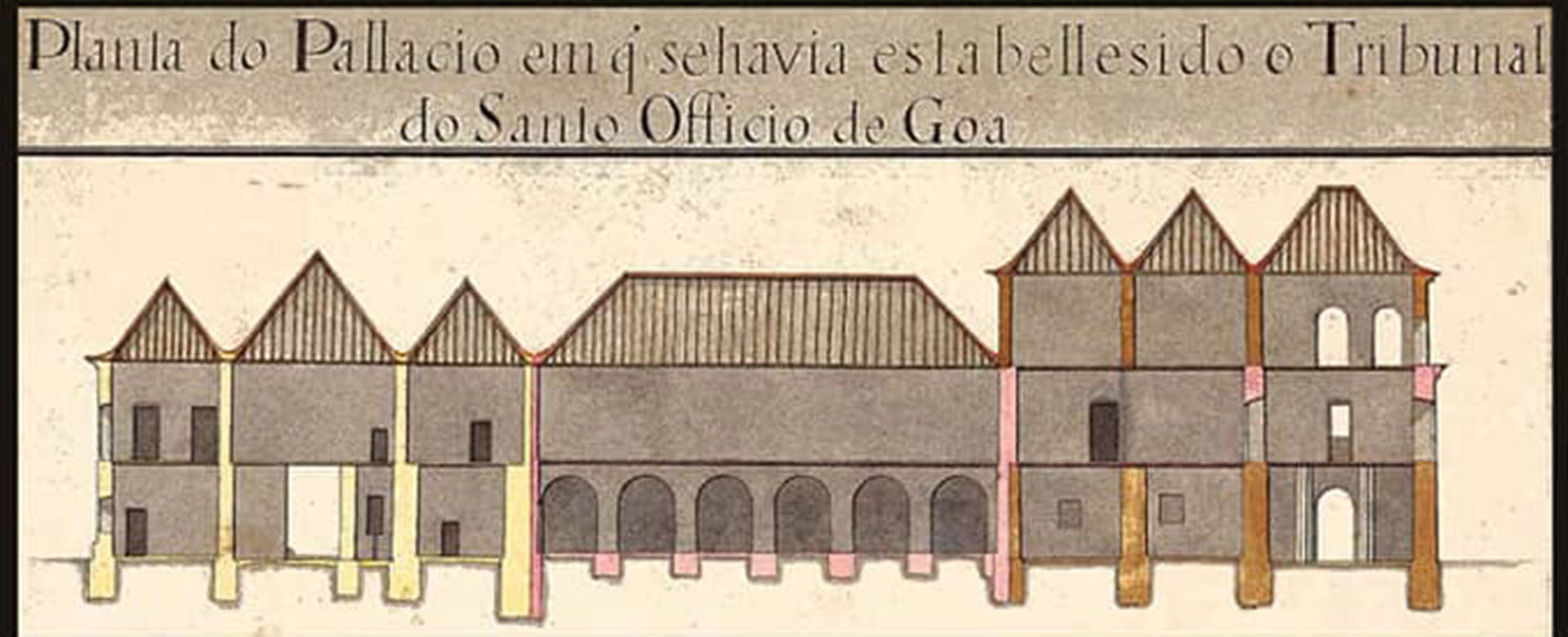Prayer: mother of a thousand blessings
March 5, 2020St John Chrysostom,Queen Esther,Ask Seek KnockReflections,Lent
 Lent 2020 - Day 9
Lent 2020 - Day 9
It’s heartening to note God's love and concern for us all the time. When Queen Esther fled to the Lord, saying, ‘Help me who am alone and have no helper but thee, O Lord’, she received help because she asked with expectant faith. Jesus wants us to ask… seek… knock – so that we may receive… find… and have the door opened to us.
St John Chrysostom says that prayer is ‘the mother of a thousand blessings’. Let’s not ask only for material things; these will be added unto us if first we seek His kingdom. And let’s also pray for others whose needs may be much greater than ours.
Should we fail to receive what we’ve asked for, let’s continue to trust that our Father in Heaven will give what is good for us! We shall feel complete and contented if we realize that ‘Man shall not live by bread alone but by every word that proceeds from the mouth of God.’
Do we need any more signs?
March 4, 2020Nineveh,Signs,Christ,Solomon,Jonah,Messiah,WisdomReflections,Lent
Lent 2020 - Day 8
What is the use of "signs" if, when they appear, we refuse to see them? They say the Jews always looked out for eloquent signs; but, alas, they failed to recognise the Messiah, the greatest Sign of all.
That's true of us as well. We behave like children that fail to see the truth of their parents' utterances. And when we sin we fail to see the goodness of God's plans for us....
Let today be a day of great blessing: may we have the wisdom of the people of Nineveh who, "from the greatest of them all to the least of them," heeded the Word of God made known by Jonah. And let us recognise that "something greater than Solomon is here," and "something greater than Jonah is here" and love Him: Christ our Lord who rose on the third day!
Nothing more reassuring than prayer
March 3, 2020God knows our needs,Prayer,Filial prayerReflections,Lent
Lent 2020 - Day 7
In the first reading today God speaks of the power of His Word: "It shall not return to me empty, but it shall accomplish that which I purpose, and prosper in the thing for which I sent it." The Gospel reminds us of the efficacy of filial prayer. And here I fondly remember my father reassuring me that God knows what we think even if we don't express it, and gives us what we want precisely when we need it: "... your Father knows what you need before you ask Him." I've also believed ever since that Jesus gave us the Our Father just to convince us to not hanker after the "right word".
Change of heart
March 2, 2020change of heart,conversionReflections,Lent
Lent 2020 - Day 6
The readings of the day give us a glimpse of what it will be when the Son of Man comes in His glory: we will be separated like the wheat from the chaff. Our eternal reward will hinge on whether or not we have loved and put God first in our life on earth by living according to what is honourable in His eyes. Let's then take this day as an invitation to conversion.
Lent: how and why
March 1, 2020Sexagesima,Quadragesima,Spiritual Spring,Septuagesima,Quinquagesima,Lent,St Paul IIReligion
Why is the 40-day period leading to the commemoration of Jesus’s Passion, Death and Resurrection called ‘Lent’? ‘Lent’ was originally a secular word (from lencten, the Old English word for ‘lengthen’) referring to the lengthening of days in the season of spring. Over the centuries ‘Lent’ became synonymous with the liturgical period as this always fell during the springtime in Europe. Besides, it was an easier word than the official Latin Quadragesima, literally, 40th day before Easter.
That today the period from Ash Wednesday to Holy Thursday (afternoon) actually comprises 44 days is another thing. This mismatch is a result of the post-Vatican II reorganization of the liturgical year and calendar: considering that the rite of ashes had become very popular, even more than many other days of greater solemnity, it was decided to have Lent prefixed by the days from Ash Wednesday to Saturday. Minus those days, the number is 40.
Historically, Quadragesima is the bare minimum period of Lent. In earlier times there was a remote preparation comprising three weeks: the Septuagesima, the Sexagesima, and the Quinquagesima that acted as a bridge between joyful Christmas and sobering Lent. The ashes have now become a reminder that the first Sunday of Lent – the Quadragesima – is round the corner, to begin the commemoration of the 40 days Jesus spent fasting in the wilderness.
That is how fasting has become inseparable from the penitential period. Earlier, fasting was throughout Lent except Sundays, in keeping with the primacy of this day as a joyful feast honouring the Resurrection of Christ. With the reorganization of Lent in 1969 it ceased to be a season of fasting. Presently, only two days – Ash Wednesday and Good Friday – are prescribed as days of fasting. For their part, Lenten Sundays play the role of shaping the week’s liturgical focus and provide the base of all the liturgy building up to Holy Week.
How long or short a period of Lent we have is finally a matter of individual choice; we know best why we abstain or refrain from certain foods; and how beneficial the season is going to be is finally left to me and my God to work out. However, if we are attuned to the liturgical seasons, we will already feel a pull towards Lent much before it actually begins; if fasting is not a matter of mere protocol we will happily go the extra mile. With the freedom we have received, we are, so to say, masters of our destiny.
Knowing the meaning and necessity of the Lenten season can help us guide our own destiny. St John Paul II summarized it well when he said: “Here then is revealed which, by its call to conversion, leads us through prayer, penance and acts of fraternal solidarity to renew or reinvigorate our friendship with Jesus in faith, to free ourselves from the deceptive promises of earthly happiness and once again to savour the harmony of the interior life in authentic love for Christ.”
That’s how and why Lent is considered a spiritual spring: we are renewed in fervour and become a vessel unto honour.
Love Him with all your heart
February 29, 2020TBNCC,Fulton J. Sheen,Cardinal Spellman,The Fulton Sheen Program,The Catholic Hour,EWTN,Loving Christ,Treasure in Clay,Life is Worth LivingReflections,Lent
Lent 2020 - Day 4
“God will love you, of course, even though you do not love him, but remember if you give him only half your heart, he can make you only fifty percent happy.” - Fulton Sheen (1895-1979)
Here's yet another author that can keep us company through Lent. Celebrated Archbishop and highly acclaimed radio and TV star, Fulton Sheen's writings and recordings never fail to strike a chord.

While still a parish priest, Sheen taught theology and philosophy at the Catholic University of America. Starting from 1925, he wrote seventy-three books. In 1930 he began a weekly NBC Sunday night radio broadcast, The Catholic Hour, on which he once referred to Hitler as an “anti-Christ”. In 1946, Time magazine featured him on the cover and referred to “the golden-voiced Msgr. Fulton J. Sheen, U.S. Catholicism's famed proselytizer”, whose radio broadcast received 3,000–6,000 letters weekly from listeners.
In 1940, Sheen celebrated an Easter Sunday Mass in 1940 in one of the first televised religious services. This put in motion a new avenue for his religious pursuits. In 1952, he moved to TV, presenting Life is Worth Living. It comprised unpaid Sheen simply speaking in front of a live audience without a script or cue cards, occasionally using a chalk board. Here he denounced the Soviet regime, saying, "Stalin must one day meet his judgment." The dictator died within a week.

Did Cardinal Spellman drive Sheen off the air when Life is Worth Living was at the height of its popularity? Sheen never talked about the situation; he even praised Spellman in his autobiography titled Treasure in Clay: The Autobiography of Fulton J. Sheen (1980) and made only vague references to his “trials both inside and outside the Church.”
In 1958, Sheen became national director of the Society of the Propagation of the Faith and, eight years later, Bishop of the Diocese of Rochester, New York. From 1961-68, Sheen’s final presenting role was on the syndicated The Fulton Sheen Program. Through his career, Sheen helped convert a number of notable figures to the Catholic faith. Each conversion process took an average of 25 hours of lessons, and reportedly more than 95% of his students in private instruction were baptized.
Just before his retirement, Sheen was appointed archbishop of the titular See of Newport, Wales. Two months before he died, when Pope John Paul II visited St Patrick's Cathedral in New York, he embraced Sheen, saying, "You have written and spoken well of the Lord Jesus Christ. You are a loyal son of the Church.”
 Today, the Fulton J. Sheen Museum in Illinois houses the largest collection of Sheen's personal items and the Sheen Center for Thought & Culture, Manhattan takes his name. In 2009, his shows began rebroadcasts on the EWTN and the Trinity Broadcasting Network’s Church Channel cable networks. Sheen's contribution to televised preaching makes him one of the first televangelists.
Today, the Fulton J. Sheen Museum in Illinois houses the largest collection of Sheen's personal items and the Sheen Center for Thought & Culture, Manhattan takes his name. In 2009, his shows began rebroadcasts on the EWTN and the Trinity Broadcasting Network’s Church Channel cable networks. Sheen's contribution to televised preaching makes him one of the first televangelists.
The cause for Fulton J. Sheen's canonization was officially opened in 2002. He is now Venerable. And venerable is also his large body of writings and talks.
Accepting the Cross
February 28, 2020Plínio Corrêa de Oliveira,TFP,Catholic thinker,Heralds of the Gospel,Brazil,Supernatural approach to life,IPCOReflections,Lent
"Each one of us has a cross to carry. Each one of us would like to be something he is not, to have something he has not, to be able to accomplish something he cannot. We need to let go of being what we are not, having what we have not, and accomplishing what we cannot; this is the way for all of us." - Plínio Corrêa de Oliveira (1908-1995), in 'Reflections on the Passion of Our Lord Jesus Christ' (https://www.tfp.org/lenten-reflections/)
In touch with the Society for the Defence of Tradition, Family and Property (TFP) for a decade (1989-1999), its Founder's spirituality came easily to mind in my quest for Lenten reading. Here are a few notes on the man whose life can't fail to touch a committed Christian:
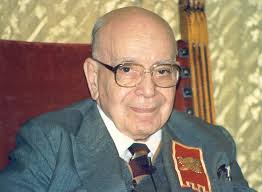
Plínio Corrêa de Oliveira was a Brazilian intellectual and Catholic activist. At 24 he became the youngest congressman in Brazil's history and a leader of the Catholic bloc. Valuing his Catholic faith above all else, he turned his back on a political career and served the Church. He taught Modern and Contemporary History at the Pontifical Catholic University of São Paulo and was editor of the Catholic weekly Legionário. In 1951, he founded the magazine O Catolicismo and later was a columnist for Folha de S. Paulo, the city’s largest daily.
Dr Plínio (as he was fondly known) was an avowed Thomist, his political ideology anti-Communist. To counter the school of liberation theology and the Cuban revolution, he founded the TFP in 1960. He decried the reforms of the Second Vatican Council but remained devoted to the Chair of St Peter.
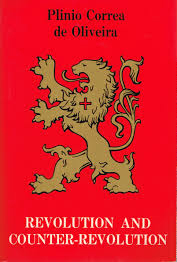
Dr Plínio is the celebrated author of fifteen books and over 2,500 essays and articles. Some of his works are: In Defence of Catholic Action (1943); Revolution and Counter-Revolution (1959), a seminal treatise that inspired the founding of autonomous TFP groups in several countries worldwide; The Church and the Communist State: The Impossible Coexistence; and Nobility and Analogous Traditional Elites in the Allocutions of Pius XII, his swan-song.
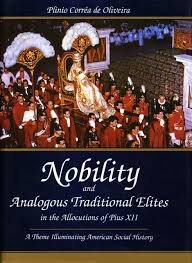
Dr Plínio's writings have the mark of an intense interior life. He had deep confidence in the Blessed Virgin Mary. An unparalleled twentieth-century crusader for a Christian Civilization, and the final victory of good over evil, he believed in the words of Our Lady at Fatima: “Finally my Immaculate Heart will triumph!”
After Dr Plínio's death, there was a split in the TFP. Eight co-founders took charge of the organization while a large chunk led by Mgr. João Clá Scognamiglio Dias left to set up Heralds of the Gospel. The new group, open to the reforms of the Second Vatican Council, was recognized as an International Association of Pontifical Right, the first one established by the Holy See in the third millennium. They are now present in 78 countries.
Mgr. Dias eventually got back control of the TPF, now devoid of its former glory. Meanwhile, the original co-founders of the TFP set up Instituto Plínio Corrêa de Oliveira (IPCO) to carry on the Founder’s ideology and activity. IPCO is associated with the TFPs and similar organizations worldwide, like the TFP was before their division.
In 1989, the TFP paid tribute to their Founder in a book titled O Homem, Uma Obra, Uma Gesta. Dr Plínio has many other biographies, two main ones being The Crusader of the Twentieth Century, by Roberto de Mattei (1998) and Rencontre avec Plínio Corrêa de Oliveira - Défenseur de la Chrétienté, by Mathias Von Gersdorff (2019). Earlier, regretting the absence of an autobiography, IPCO published Minha Vida Pública (2015), an anthology of writings that throw light on the life and mission of the man.
Knowing Dr Plínio Corrêa de Oliveira’s ideals fills a Christian with hope. His profound analysis of history and world events and his supernatural approach to life - a loving acceptance of the Cross - can uplift the most disheartened soul. To me, a decade with Dr Plínio was worth a lifetime.
Heralds of the Gospel, https://www.arautos.org/
IPCO, https://www.pliniocorreadeoliveira.info/biografia.asp)
The Springtime of Lent
February 26, 2020Reflections,Lent
On the look-out for inspirational authors to read this Lent, I first thought of the old classics. But then I chanced upon a twentieth-century author: Therese Mueller, born in Germany, in 1905. An academic (economics and sociology) married to sociologist Franz Mueller, they were liturgical pioneers and involved in the Catholic youth movements in their country.
In 1940, the arrival of the Nazi regime interrupted their lives. The Mueller family migrated to the United States where people got interested in their faith experiences in Europe. Therese, with her sociological background, got vocal on how the liturgy could be taught and shared amidst a family. Her articles were compiled into a pamphlet titled Family Life in Christ (1941). Later she wrote Our Children’s Year of Grace (1943) and The Christian Home and Art (1950). These publications are an expression of her experiences as a wife and mother.
The Muellers eventually settled in St. Paul, Minnesota. Franz lectured at St Thomas University, while Therese taught part-time at St Thomas and at the College of St Catherine. The couple wrote and spoke about the Christian home as a crucial dimension for the liturgical life. Franz died in 1994 and Therese in 2002, leaving behind an eloquent life example of lay priesthood.

Here's an excerpt from Therese Mueller's Our Children’s Year of Grace (recently reprinted by Martino Fine Books, ISBN-13: 9781684222445), aptly describing the fruits of the springtime of Lent:
"We prepare for the renewal of our baptism, we suffer with Christ for our sins, we are buried with Him so that we may also arise with Him to a new life of grace and glory."
Why the Inquisition in Goa
February 20, 2020Panjim,Inquisition Tribunal,Goa,Charles Gabriel Dellon,José Pedro Paiva,Inquisition,Lisbon,A. K. Priolkar,Instituto CamõesInquisition
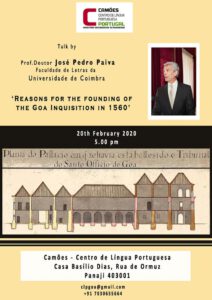
At Instituto Camões, Panjim, Professor José Pedro Paiva of the University of Coimbra provided a lucid rationale for the establishment of the Tribunal of the Inquisition in Goa (1560-1812). His talk was titled "Reasons for the Founding of the Goa Inquisition in 1560". He stated, among other things, that even prior to the arrival of St Francis Xavier the Religious had endeavoured to establish the Tribunal in Goa.
For my part, convinced that no serious student of history should depend exclusively on Charles Gabriel Dellon's much-quoted account titled Relation de l'Inquisition de Goa (1687) and Bombay-based A. K. Priolkar's expedient interpretations of the Frenchman's allegations, I asked the erudite Professor where one would find fresh archival sources to counter their claims. He pointed to the Portuguese and Brazilian archives.
Without a doubt, the Tribunal, like every human enterprise, had its shortcomings; but having said that, by no means do Dellon and Priolkar deserve a clean chit. While the testimony of the former, who was tried and incarcerated by the Tribunal, is largely suspect, the latter's narrative fails to contextualize the institution, and his vitriolic language hardly behoves a researcher. It is curious to note that his work appeared in the year 1961, a watershed in the history of Goa and Portugal.
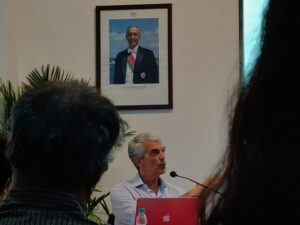
It is a pity that there has hardly been any comprehensive study of the Goa Inquisition, particularly in the English language. And alas, just as a big lie told frequently enough is finally believed, unsuspecting readers have found themselves trapped in a web of lies regarding the nature and purpose of the Inquisition. It is heartening that a younger crop of researchers has been shedding fresh light on the subject and overturning previous findings or misplaced conclusions.
Meanwhile, as the matter in question often boils down to the number of deaths at the stake, I was keen to know details of the same. The exact figure will never be known, since the relevant papers are unavailable, for reasons too complex to mention here. However, Professor Paiva authoritatively stated that, based on the lists of names available in Lisbon, the number of trials held in Goa, over a period of 250 years (1560-1812), are reckoned at 14,000 and the convictions at 800, the average thus being 3.2 deaths per annum.
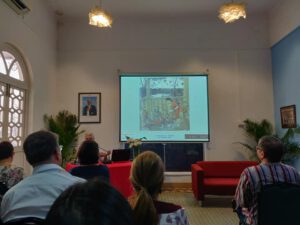
Comparisons may be odious, but can we overlook the odious crime of human sacrifice perpetrated in Indian society outside the borders of Goa during that same historical period? Some of them had religious sanction, others were committed arbitrarily, but none gave any scope for self-defence or mercy. Similarly, who can deny that the number of convictions by criminal courts far exceeded the inquisition tribunal's annual average of convictions?
Finally, those numbers pale by comparison to the political and other inquisitions at work in the twenty-first century, many of which - please note - do not have even the semblance of a tribunal or a fair trial. Hence, a sense of history and fair play are a must to understand the rationale behind the Inquisition tribunal set up in Goa way back in the sixteenth century.
Herald at 120!

I'm a fourth-generation reader of Goa's first daily. As much as I grieved the loss of the Portuguese edition in 1983, I looked forward with great anticipation to Herald as we know it today. Its arrival was timed to more or less coincide with the Commonwealth Heads of Government Retreat in Goa, which the paper then covered most delightfully. Eventually, Herald acquired a great reputation, thanks to its sustained campaign for recognition of Konkani as official language and Statehood for Goa. The paper has since been firmly ensconced in the heart of every Goan. I sincerely hope that Herald will continue to earn the trust and confidence of its readers and writers and forever be a people's paper par excellence.
(Herald, 26 January 2020, p. 22)







